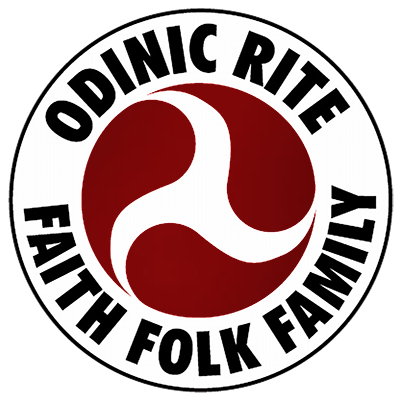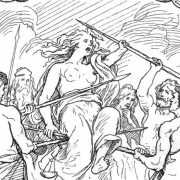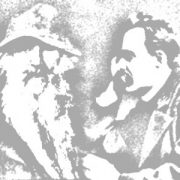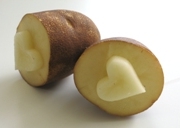John Barleycorn Must Die
By Reginhard OR
John Barleycorn is a character in English folksong and is a personification of barley and more importantly of the beer made from it. In the song he is subjected to a number of assaults which correspond to the harvest milling and brewing of beer. John Barleycorn encounters great suffering and death so that others may benefit.
The song itself dates from the 16th Century, although it is unclear whether the song pre-dates this further. There are countless versions of the song, and even the great Robert Burns penned a version of it. Interestingly the traditional hymn “We plough the fields and scatter” can be alternatively sung to the tune of John Barleycorn (and no doubt vice versa).
As an obsessive brewer myself, and a great lover of this song, I thought it would be interesting to try to find a traditional link to this fantastic song and art!
It turns out Mr Barleycorn is not the first to end up in the bottom of a mash tun.
Beowa – (Beaw, Beow, Beo, Bedwig)
Beowa is found in Anglo-Saxon myths associated with barley and agriculture. Beowa is written into the genealogy of Alfred the Great as the son of Scyld (Shield) and the grandson of Sceafa (Sheaf) and a descendant of the Scyldings. Beow is Old English for barley, and the Old Norse is Bygg.
On a side note, some historians have argued that Beowa and Beowulf are one and the same, although this is speculation.
Bygg/Byggvir
Very similar to Beowa, Bygg is mentioned as a servant of Frey and of course his name is Barley. He has a wife called Beyla who also serves Frey. Whilst it is unclear how her name translates it has been suggested that it is “Bee”.
Fjölnir – (Fjölner, Fjolner or Fjolne)
Fjölnir appears in the Ynglinga Saga as the Son of Frey and Gerd. Whilst visiting Zealand for a feast, he is said to have accidentally fallen into a vat of mead and drowned.
Fjölnir is also given as a name for Odin in Gylfaginning, Reginsmal and Grimnirsmal.
The Ballad of Veraldur
There is a Faroese ballad (written down 1840) about Odin and his son Veraldur. It is possible that Veraldur relates to either Fjölnir or Freyr (veraldar goð -“god of the world” – Sturlson). Once again we are in Zealand and this time Veraldur is seeking the King’s daughter’s hand in marriage. This time he is tricked into falling into the brewing vat as the King does not approve.
Kvasir
No list of “Barleycorns” would be complete without Kvasir. Murdered by dwarves and his drained blood mixed with honey resulting in the Mead of Poetry. Kvasir was born of the saliva of the Aesir and Vanir which was spat into a pot as an act of peace to end the war between them. The term “Kvass” is Old German verb to squeeze or crush. In ancient cultures berries were often communally chewed and spat into a container. It can therefore be argued that the dwarven drink was a Melomel rather than a Mead, as the blood of Kvasir is berry juice.
His worship is of course with regard to peace-making and possibly brewing practices.
There are of course many others, and this list is by no means exhaustive and thousands of versions are surely lost to time. I would however like to put forward a theory of my own. In ancient times the act of brewing itself was magical. There would have been little understanding of the process and this would have been explained though allegory. To this day the Abbey beers of Belgium still have prayers read over the fermenting wort. So I would like us to cast new eyes upon the wooing of Gunnlod. This myth has many teachings and higher learning is to be had in it’s study. I would like to add a brewing link.
In the tale, Odin enters the mountain which houses Gunnlod using a drill to make a small hole. Hand-tapping a barrel is not too dissimilar. He transforms into a snake and enters the mountain. It is possible that this is the mystical yeast being added through an unknown method.
“Over and under me ran giants’ roads. Great was my peril” – Hv 107. Anyone who has brewed will tell the initial fermentation can be quite volatile and often the mixture bubbles and froths. Later he spends time with Gunnlod and persuades her to part with Odraerir (mead) from the well of wisdom. Brewing a fine brew takes time. Later Gunnlod is “left in tears”, i.e. the remains of the wort are cast aside and are of no further use.
I am sure the arts of drinking, poetry and singing are not by any means waning. For those yet to discover the art of brewing, it is easier than you think and the OR Cookbook has some great tips and recipes.
Sources
wikipedia.org
Herbert, – Looking for the Lost Gods of England
Titchenall – The Masks of Odin





